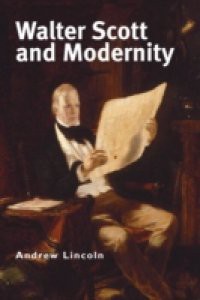Walter Scott and Modernity argues that, far from turning away from modernity to indulge a nostalgic vision of the past, Scott uses the past as means of exploring key problems in the modern world.This study includes critical introductions to some of the most widely read poems published in nineteenth-century Britain (which are also the most scandalously neglected), and insights into the narrative strategies and ideological interests of some of Scott's greatest novels. It explores the impact of the French revolution on attitudes to tradition, national heritage, historical change and modernity in the romantic period, considers how the experience of empire influenced ideas about civilized identity, and how ideas of progress could be used both to rationalise the violence of empire and to counteract demands for political reform. It also shows how current issues of debate - from relations between Western and Islamic cultures, to the political significance of the private conscience in a liberal society - are

